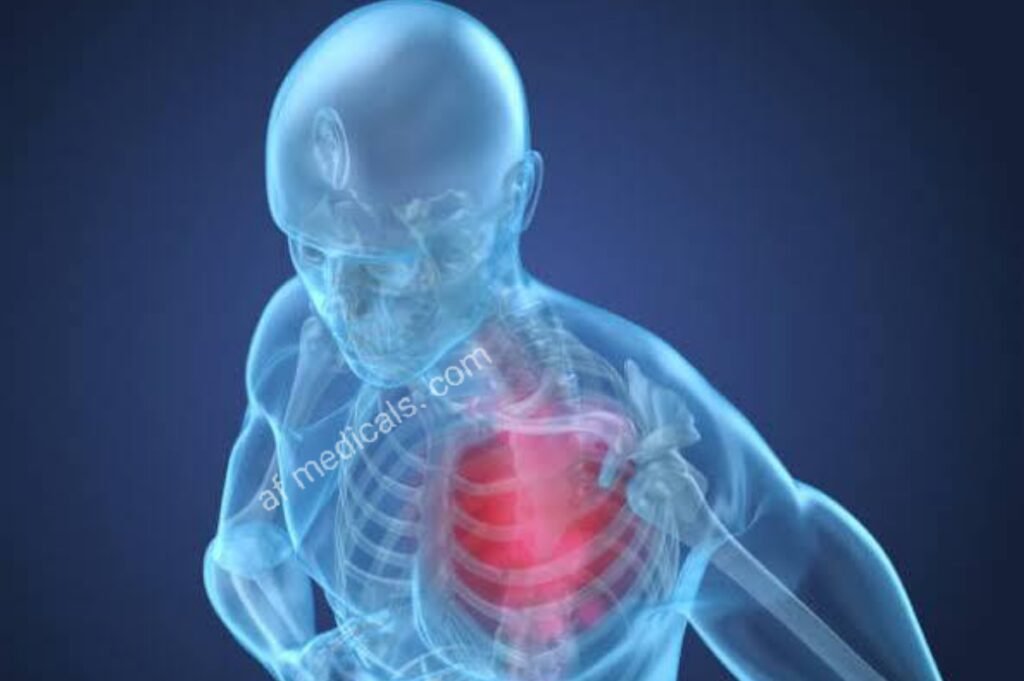Acute coronary syndrome:
Acute coronary syndrome describes a range of conditions related to sudden reduced blood flow to the heart. These conditions consist of a heart attack and unstable angina.
Unstable angina occurs when blood move to the heart decreases. It is not severe enough to cause cell death or a heart attack. But the reduced blood flow may increase your risk of a heart attack.
Acute coronary syndrome often causes:
Severe chest pain or discomforts in body . It,s a medical emergency that needs a diagnosis and care right away. The goals of treatment consists improving blood flow treating complications and preventing future problems.
Symptoms
Chest severe Pain or Discomfort Often described as aching, pressure, tightness, or burning.
Radiating severe Pain Starts in the chest and spreads to other areas like shoulders, arms, upper belly, back, neck or jaw.

- Nausea or Vomiting
- Indigestion
- Shortness of Breath Also called dyspnea.
- Sudden, Heavy Sweating
- Racing Heartbeat
- Lightheadedness or Dizziness
- Fainting
- Unusual Fatigue
Chest severe pain or discomfort is the most common symptom. But symptoms may vary quite a bit depending on your age sex and other medical conditions. Y hi ou are more likely to have symptoms without chest pain or discomfort if you are a woman, an older adult or have diabetes
Suggestion of doctor:
Chest severe pain can be a symptom of many life threatening states. Get emergency help for a diagnosis and appropriate care right away. Do not drive yourself to the hospital.
Causes of Acute Coronary Syndrome
Fatty Deposits:
Buildup on the walls of blood vessels (coronary arteries) that supply blood, oxygen, and nutrients to the heart muscles
Rupture or Split of Fatty Deposits:
Leads to the formation of a blood clot, which can block blood flow to the heart muscles.
Low Oxygen Supply:
Results in cell death in heart muscles, known as a heart attack.
Damage to Muscle Tissues:
Even without cell death, reduced oxygen can lead to impaired heart muscle function known as unstable angina.
Risk factors:
There are common risk factors for acute coronary syndrome are includes
- Getting older.
- High blood pressure.
- High blood cholesterol.
- Smoking tobacco.
- Lack of physical activity.
- Eating an unhealthy diet.
- Obesity or overweight.
- Diabetes.
- Family history of chest sever pain heart attacks
